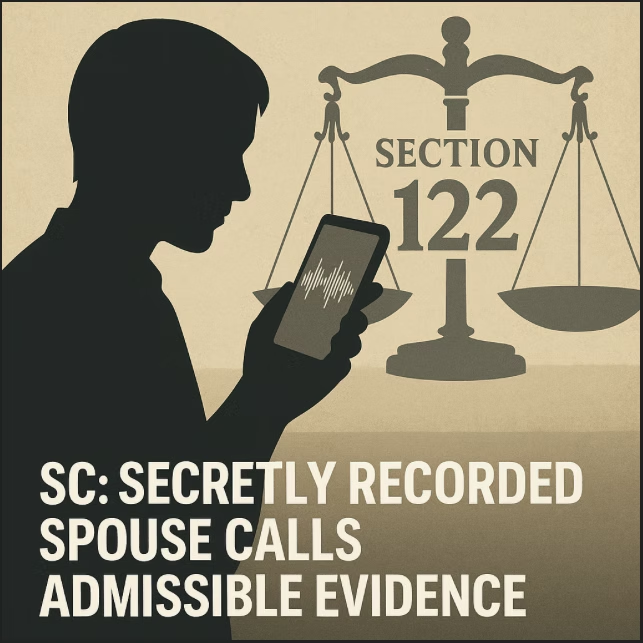PREVIOUS
Secret Spousal Recordings in Divorce Cases
July 22 , 2025
15 hrs 0 min
32
0
- The Supreme Court of India in Vibhor Garg v. Neha ruled that secretly recorded conversations between spouses can be used as evidence in matrimonial disputes, including divorce cases.
- The spouses' snooping on each other is proof that the marriage is not going strong and hence can be used in judicial proceedings.
- The Punjab and Haryana High Court had held that the secret conversations between spouses are protected under Section 122 of the Evidence Act and cannot be used in judicial proceedings.
- The Supreme Court referred to a 1973 case where secret telephonic recordings were accepted as evidence in a corruption trial.
- It extended this reasoning to matrimonial disputes.
- The apex court’s judgment reshapes the understanding of spousal privilege and privacy in Indian law.
Background
- The Evidence Act was enacted in 1872, before privacy was recognised as a fundamental right in India in 2017.
- Spousal privilege protects private communication between married partners.
- It prevents a person from being forced to testify against their spouse in criminal cases.

Leave a Reply
Your Comment is awaiting moderation.


